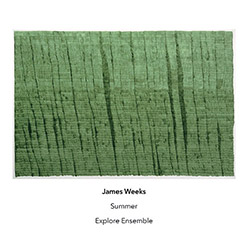
Five chamber works from UK composer James Week performed by Explore Ensemble, developing works extending the poetic idea of a piece as an imaginary or remembered space by exploring combinations of instruments such as the mixed instrumental duos, the use of slow-moving or static background harmonics, and intimate instrumental idioms based on long, breath-length sounds.
In Stock
Quantity in Basket: None
Log In to use our Wish List
Shipping Weight: 3.00 units
EU & UK Customers:
Discogs.com can handle your VAT payments
So please order through Discogs
Sample The Album:
James Weeks-composer
Taylor MacLennan-flutes
Alex Roberts-clarinet
Oscar Holch-viola
Deni Teo-cello
David Lopez Ibanez-violin
Siwan Rhys-piano, harp
George Barton-percussion
Angela Wai-Nok Hui-percussion
Nicholas Moroz-electronic realisation
Click an artist name above to see in-stock items for that artist.
Label: Another Timbre
Catalog ID: at174
Squidco Product Code: 30467
Format: CD
Condition: New
Released: 20201
Country: UK
Packaging: Cardboard Gatefold
Recorded at the Church Of the Holy Innocents, in London, England, UK, by Simon Reynell.
Another Timbre Interview with James Weeks
The pieces on your new CD were all written at roughly the same time. Are they loosely connected as a series or are they totally separate works?
They were all written separately, on different impulses, although by the time I started planning Siro's Garden I had already realised that the others could be part of a coherent sequence. So in that piece I was aware of tying them together as a set, by continuing and extending certain poetic ideas, ways of using and combining instruments, and ways of thinking about material, that I'd started exploring in the shorter pieces. Things like the use of mixed instrumental duos, which comes from Violet-Violute, the use of a slow-moving or static background harmonic layer, which comes from Summer, the overall very soft and intimate instrumental idiom based on long, breath-length sounds, which appears in all the pieces other than Durham. And finally of course the poetic idea of a piece as opening up an imaginary (or remembered) space: music which unfolds as an area or a field, for the listener to wander in without having to follow a complex series of narrative events.
Do 'Durham' and 'Düsseldorf' invoke the cities that give them their name in any way? Is it programmatic music at all?
Sort of, but also sort of not. There's obviously a feel of 'evocation' about all the pieces on the disc, and inevitably that's the way-in for many people hearing them for the first time. I'm interested in the atmospheres of places, of particular moments in particular environments, and I don't feel embarrassed about incorporating these as affective images - or perhaps 'conceits' in the poetic sense - directly into my work. But at the same time I'm not trying to 'portray' them, as a 19th-century composer might: I just let the idea or the memory sort of colour the choice of material and the overall form the music takes, whilst composing in an essentially abstract way with the materials. In Durham, for example, I used the notes of Cathedral's Angelus bells to start the composition off, but then I simply wrote a piano piece, using a restricted harmonic palette of just 4 pitches. Actually this piece was written in homage to Howard Skempton for his 70th birthday, so I was also thinking about what our musics have in common. He too uses evocative titles for what are essentially non-representational works, and I love the interesting tension that gives to the way we listen to them: 'What does this piece have to do with its title?' Düsseldorf is another case in point: on one level it's a transcription of ten minutes I once spent in a garden in the city, listening to two bells from different churches and the way they coloured the whole sonic environment. But there's no narrative: the piece is an exploration of its materials and how they interact together. It's also another homage, as it's the city of Wandelweiser and Klangraum, which was why I was there, rehearsing for a concert - a way of marking an association with music, and a way of being in the world as a musician, that I love and feel close to.
What about 'Summer'? Where does that come from, and what are its associations?
I don't remember much about the genesis of Summer, which I wrote in 2016, not for any occasion or any particular ensemble. I think it was literally as simple as finding those two chords at the piano one day while working on another piece, and wanting just to sit with them for a while. The rest of the texture grows out of them, simply as amplifications, prolongations and distortions of their constituent pitches. At the time I was getting very involved with ways of working with modal harmony and triads in different tuning systems - something I'm still very interested in - so the way this piece incorporates equal temperament (the piano), Just Intonation (the keyboard/tape part) and looser, approximate inflections (the other instruments) is typical. I had in mind the kind of ripeness you get in fruits where their texture is just slipping into overripe - still holding their shape, but on the verge of becoming pulpy and soft, when decay is just about to begin. I think there's maybe an emotional parallel here in that sense of late-summer stasis, and a sort of melancholy I associate with it: I definitely feel that in the tonal ambiguity of the chords, and the piece really grew out of those associations.
And 'Violet - Violute'; even having recorded it, I'm not sure if it is a single piece or two pieces combined. How does it work and what are the underlying ideas?
They are two different pieces! Ages ago I jotted down the idea to make a piece called Violet, for viol-in and clarin-et - yes, really - something small and intimate where the two instruments would sound as one. Later I had the opportunity to do something for viola and bass flute, so I called that Violute and then went back and wrote Violet afterwards. Both pieces are fundamentally very simple, listening in to inflections of a single harmony in different ways. It was fascinating to write so microscopically, working with the tiniest differences of inflection or timbral combination (including singing-and-playing).
Finally 'Siro's Garden'. You explain on the CD cover that the piece refers to Siro, an Epicurean philosopher, and notions of harmony with the natural world, but can you tell us more about the texts used, and how the piece developed musically?
I'd been thinking about Virgil's Georgics for a while. I was looking around for texts concerning humanity and the natural world, as that's been a preoccupation of my music for a long time (for example in windfell, at139), and I often find literary sources germane to my writing, whether or not they appear in the final piece. The Georgics are an epic-didactic poem, partly in imitation of Lucretius' De rerum natura, dealing with farming, and more generally with humanity's relationship to the land and to the natural world. I found the famous passage in which Virgil directs a prayer to the Muses to teach him understanding of the world (in the scientific, Lucretian sense), but that if it is not in his nature to understand it intellectually, that he may nevertheless love it (i.e. to apprehend nature in a directly sensual and emotional way). This resonated with me, particularly in the way it sensitively explores the different modes by which we encounter and live in the world, which is paralleled of course in the way we respond to art. I decided to use the text, and its notion of a multi-modal response to the world, as the basis of a piece, which became Siro's Garden.
I set the text in two ways: firstly, I set it 'in the world', in a garden: the garden of Virgil's teacher Siro, an Epicurean philosopher at whose school near Naples Virgil was resident as a young man. The whole piece is an imaginary recreation of a scene in this philosophical retreat: the different instruments spread around the stage, singly or in groups of two, as if inhabiting a garden, contemplating, reading, or writing poetry: their music, always very soft, is the sound of their inner thoughts. The passage from the Georgics is read through at the start, and the music - and the scene itself - seem to take shape out of it.
The second setting is musical: each word of the text is assigned a phrase of music - a single tone or melodic line, sounded in a single breath/bowstroke - played by each of the three duos (alto flute-violin; clarinet-viola; bass flute-cello). It takes these trios the entire length of the piece to articulate the 12 lines of poetry in this way: each word is announced softly by the violinist as it plays the associated phrase, so if you listen closely you can hear where we have reached in this very slow 'recitation'.
Another layer to the work is harmony. I use 12 different tetrachord-based scales, some authentic Ancient Greek tunings and some I invented. I allocated one to each line of poetry, and you can certainly hear a movement between diatonic, chromatic and microtonal ('enharmonic', in the Greek terminology) harmony in the instrumental parts. But at the same time they get overlapped and mixed up with other layers - the tape part and the two Celtic harps - so in the end, like Virgil trying to apprehend the world, we have to stop trying to tease apart these constituent parts and take in the overall harmonic effect.
Finally I should mention the Celtic harps, which complete the image of an Epicurean garden of quiet contemplation, adding fluidity to the texture and distantly evoking the sound of lyres (fleshing out the conceit, or allegory, of the work). A feature of the piece is the retunings that they have to undertake between each of their passages.
It might be useful for listeners to have Virgil's lines:
Me vero primum dulces ante omnia Musae,
quarum sacra fero ingenti percussus amore,
accipiant caelique vias et sidera monstrent,
defectus solis varios lunaeque labores;
unde tremor terris, qua vi maria alta tumescant
obicibus ruptis rursusque in se ipsa residant,
quid tantum Oceano properent se tingere soles
hiberni, vel quae tardis mora noctibus obstet.
sin has ne possim naturae accedere partis,
frigidus obstiterit circum praecordia sanguis,
rura mihi et rigui placeant in vallibus amnes,
flumina amem silvasque inglorius.
Virgil: from Georgics, II.475-486
As for me, may the sweet Muses, supreme above all,
whose rites I celebrate, stirred by a great love,
receive me, and show me heaven's roads, and the stars,
the sun's many eclipses, the moon's labours,
where earthquakes come from, forces that swell the deep seas,
bursting their barriers, then sinking back again into themselves:
why winter suns rush so to dip themselves in the ocean,
and what it is that holds back the slow nights.
But if the chill blood around my heart prevents me
from reaching those regions of nature,
let the country and the flowing streams in the valleys please me,
let me love the rivers and the woods, unknown.
Artist Biographies
• Show Bio for James Weeks "Hailed as 'one of the most inventive young composers and conductors out there' by The Guardian, James Weeks enjoys a growing international reputation both for his own music and for his consummate performances of contemporary repertoire. Born in Blackburn in 1978, he read Music at Cambridge before completing a PhD in Composition at Southampton University, studying with Michael Finnissy. His music has been commissioned and performed by many leading performers including London Sinfonietta, Apartment House, Quatuor Bozzini, Alison Balsom, EXAUDI, Morgan/Dullea, Wandelweiser, New London Chamber Choir, Uroboros Ensemble, Endymion, Anton Lukoszevieze and Christopher Redgate. He has been performed at UK and European festivals and venues including City of London, Spitalfields and Huddersfield Contemporary Music Festivals, Gaudeamus (Amsterdam), Quincena Musical (San Sebastian), de Bijloke (Ghent), Wandelweiser (Düsseldorf, Munich), Weimarer Frühjahrstage and Mafra (Portugal). His music is heard regularly on BBC Radio 3's Hear and Now, and in 2012 he signed to University of York Music Press. Since 2005 the main focus of his music has been on solo and small-ensemble works exploring elemental or primary musical materials and processes, either left bare or built up into polyphonic structures of considerable density. Recent major works include Schilderkonst (for mixed ensemble, 2003-4) Stacking, Weaving, Building, Joining (for any number of players, 2006), the Harmonies of South London series (for various ensembles, 2008-11), Burnham Air (for oboe d'amore, 2008), Hototogisu (for children's choir, 2007), TIDE (for ensemble and electronics, 2007-10), Parnassus (for vocal and string sextets, 2008-9), Mala punica (for eight solo voices, 2008-9), and The Freedom of the Earth (for chorus and instruments, 2011). As a conductor, he is best known for his work with the contemporary specialists EXAUDI www.exaudi.org.uk, the vocal ensemble he founded with the soprano Juliet Fraser in 2002. With them he maintains a busy international touring schedule, collaborating regularly with the world's leading composers, new music soloists and ensembles, and has released six acclaimed CDs, of Finnissy, Fox, Lutyens and Skempton on Mode, NMC and Metier. The ensemble specialises in the most complex new music - performances of Ferneyhough, Dillon, Xenakis, Gervasoni, Birtwistle and Finnissy have won them worldwide praise - and experimental music, often presented alongside repertoire from the Renaissance or early baroque. He was Musical Director of the New London Chamber Choir www.nlcc.org.uk and Orlando Chamber Choir (www.orlandochoir.org.uk) from 2007-2011. In great demand as a guest conductor, he has worked with London Sinfonietta, BBC Singers, L'Instant Donné (Paris), Raschèr Saxophone Quartet, New Music Players, Endymion, IXION, I Fagiolini and Birmingham Contemporary Music Group, with whom he recorded Howard Skempton's Chamber Concerto for NMC. He is also much in demand as a choral animateur and tutor, and regularly leads courses for Dartington International Summer School. He is also active as an organ recitalist, pianist and writer on contemporary music, and broadcasts regularly on early and new music for BBC Radio 3. In 2006 he co-founded the ensemble Kürbis with the composer Claudia Molitor, dedicated to the performance of contemporary and experimental chamber music. The ensemble has performed in London (The Cutting Edge; Spitalfields Festival), Cambridge (Kettle's Yard), and at Soundwaves Brighton and recorded for Radio 3. In 2010 he was Artistic Associate of the Spitalfields Festival (London). He was appointed Associate Head of Composition at the Guildhall School of Music & Drama, London, in September 2012." ^ Hide Bio for James Weeks • Show Bio for Taylor MacLennan "Taylor MacLennan: Flute Taylor has been the flute player of Explore Ensemble since its foundation in 2012. Originally from Scotland, Taylor moved to London in 2010 to study at the Royal College of Music where he received his Bachelor's and Master's degrees as well as an Artist Diploma in 2017. During his time there, he won the RCM Flute Prize and had the opportunities to work with conductors including Bernard Haitink, Vladimir Ashkenazy and Sir Roger Norrington. Taylor took up further study with Patrick Gallois at the Accademia Musicale Chigiana in Siena where he was awarded the Diploma of Merit. Taylor was a member of Southbank Sinfonia in 2018 and has since worked with the BBC Symphony Orchestra, English National Opera and the Oxford Philharmonic, as well as guest principal flute with Scottish Ballet. Taylor has appeared at festivals including the BBC Proms, Aldeburgh, Cheltenham and Encuentro de Música Santander. Taylor enjoys tennis, being a home barista and all things culinary." ^ Hide Bio for Taylor MacLennan • Show Bio for Alex Roberts "Alex Roberts: Clarinet Alex has played clarinets and various other instruments with Explore Ensemble since 2014. As a freelance orchestral musician, he has played regularly with the Philharmonia and Welsh National Opera. After graduating from the Queensland Conservatorium, Alex completed post-graduate studies at the Royal Northern College of Music and has since taken part in masterclasses with Francois Benda and Yehuda Gilad. Passionate about social justice, Alex is the assistant musical director for Liberty Choir, a charity which creates choirs in prisons with the people inside them and volunteers from local communities. Alex has hiked in the Carpathians, Pyrenees and the Pennines and, perhaps not surprisingly for an Australian, looks forward to brewing the perfect cup of coffee every morning." ^ Hide Bio for Alex Roberts • Show Bio for Oscar Holch Oscar Holch: Oscar is a 23 year old career violist who got a first at the Academy and now holds a Guildhall scholarship, where he is principal viola in the Guildhall SO and baroque orchestra. He has participated in many masterclasses, and his quartet recently won the Edinburgh Apprentice Competition." ^ Hide Bio for Oscar Holch • Show Bio for Deni Teo "Deni Teo: Cello Deni has been a member of Explore Ensemble since 2013. She completed her Undergraduate and Postgraduate degrees at the Royal College of Music, studying with Melissa Phelps. She currently enjoys a varied career in orchestral, contemporary and film session playing. Deni is a member of Sinfonia Cymru and was a member of Southbank Sinfonia in 2019. She regularly performs with the BBC Symphony Orchestra and Royal Liverpool Philharmonic Orchestra and recently started a trial with the Royal Scottish National Orchestra. Deni has been invited to play with Cardiff based new music group Uproar Ensemble since 2020 and also performed with the Max Richter Ensemble, giving the premiere of his piece 'Voices'. Baking is Deni's other major passion and you'll find her posting photos and videos of her creations on Instagram @denibakes." ^ Hide Bio for Deni Teo • Show Bio for David Lopez Ibanez "David López Ibañez: Violin David has played violin with Explore Ensemble since 2016. He is a member of the Hill Quartet and has played with the Philharmonia Orchestra, the Royal Philharmonic Orchestra, the BBC Symphony Orchestra, the London Sinfonietta, Haydn Philharmonie and Spira Mirabilis. He has performed around the UK and internationally, in venues like Wigmore Hall, Royal Festival Hall, Amsterdam Concertgebouw, Berlin Konzerthaus, Elbphilharmonie Hamburg, Vienna Musikverein, Koernel Hall Toronto, and Tokyo Metropolitan Hall, among others. He studied at the Royal College of Music in London with Professors Detlef Hahn, Radu Blidar and Lucy Russell, and currently studies with Lorenza Borrani at Scuola di Musica di Fiesole in Italy. In his spare time he enjoys running, cycling, reading and painting." ^ Hide Bio for David Lopez Ibanez • Show Bio for Siwan Rhys "Welsh pianist Siwan Rhys enjoys a varied career of solo, chamber, and ensemble playing, with a strong focus on contemporary music and collaboration with composers. She has played at prestigious British venues such as the Barbican Hall, Wigmore Hall, Royal Festival Hall, St David's Hall, Symphony Hall, and abroad at the Elbphilharmonie Hamburg, Le Tambour Rennes, and Shanghai Symphony Hall amongst others. She has also appeared at the Aldeburgh Festival, BBC Proms, Principal Sound, Occupy the Pianos, Lille Piano(s) Festival, and has recorded many times for television, radio, and labels such as NMC, all that dust, and Prima Facie. Her recent recording of Stockhausen's KONTAKTE (with percussionist George Barton) was released in October 2019 on the all that dust label. Recent concert engagements include performances of Charles Ives' 'Concord Sonata' in France as part of the Oeuvres Monstres series, Nono's ...sofferte onde serene... at the Principal Sound festival, Feldman's For Philip Guston and Why Patterns?, Stockhausen's KONTAKTE, and appearances at Occupy the Pianos and Lille Piano(s) Festival playing music by Vivier and Eastman. Also a regular ensemble and orchestral pianist, Siwan has worked with the London Sinfonietta, Birmingham Contemporary Music Group, Colin Currie Group, Aldeburgh Festival Ensemble, Mahogany Opera Group, Music Theatre Wales, Philharmonia Orchestra, London Symphony Orchestra, and City of Birmingham Symphony Orchestra, with conductors Oliver Knussen, François-Xavier Roth, and George Benjamin among others. Siwan works regularly with mezzo-soprano Lucy Goddard, and is a member of GBSR piano-percussion duo with whom she was a 2017-18 St John's Smith Square Young Artist. She is an honorary member of the Welsh Gorsedd of Bards and an Entente Cordiale alumna. She teaches at the London Contemporary School of Piano." ^ Hide Bio for Siwan Rhys • Show Bio for George Barton "George Barton is a solo, chamber and orchestral percussionist and timpanist based in London. He is a member of the Colin Currie Group and has also worked with the London Symphony Orchestra, Orchestra of the Age of Enlightenment, Nash Ensemble, Britten Sinfonia, Aurora Orchestra, Birmingham Contemporary Music Group, Endymion, Music Theatre Wales, BBC Singers, Mahogany Opera Group, Notes Inégales, Riot Ensemble, London Contemporary Orchestra, the Royal Opera House, and the Multi-Story Orchestra, among many other ensembles and orchestras. As a solo artist George has performed at the Southbank Centre's "The Rest is Noise" festival, the "Occupy the Pianos" festival at St John's Smith Square, and at a number of Nonclassical events across London, among other venues across the UK. His collaboration with Turner Prize -winning artist Jeremy Deller at the Barbican's Station to Station festival was featured on BBC2's Artsnight, and his playing has been recorded and broadcast many times for BBC Radio 3 and NMC. He was featured soloist at Filthy Lucre's The Sounding Body concerts and clubnight - footage available on the media page. As an ensemble and orchestral player he has performed at all the major London concert halls, including at the BBC Proms every year since 2014, as well as such venues as the Cologne Philharmonie, Elbphilharmonie Hamburg, Tokyo Opera City, and many others. He has performed chamber music at various venues around the UK and abroad, including the Concertgebouw Grote Zaal, Amsterdam, Cité de la Musique, Paris, Delft Chamber Music Festival, Royal Festival Hall, and Huddersfield Contemporary Music Festival. With duo partner Siwan Rhys he has performed at St John's Smith Square, Barbican Hall, the City of London Festival, XOYO, Scala and The Forge, among other venues. Committed to commissioning new music, the duo became New Dots artists in 2014; in 2017 they took part in the Stockhausen biennial at Kürten, performing Kontakte and solo works. The duo was selected to become one of three St John's Smith Square Young Artists for the 2017-18 season. Their programme for the season included the premiere of a 40-minute work from Oliver Leit and the UK premiere of Eric Wubbels' doxa, alongside music by Stockhausen, Kagel, Cage, Fran le Lohé and John Luther Adams, as well as unpublished music by Morton Feldman." ^ Hide Bio for George Barton • Show Bio for Angela Wai-Nok Hui "Angela Wai- Nok Hui: percussionist and multidisciplinary artist based in London and Hong Kong, graduated from the Royal College of Music in 2016 (MMus) with distinction as a classically trained percussionist and timpanist. She has collaborated with lots of new music and contemporary classical ensembles in London. Angela loves being in the creative process and experimenting with different art forms. This predilection makes her more determined to continue forging her own narrative platform in order to support her wild imagination. She is always in search of different media, in which she can represent herself more fully. She has started to create her own work, which often engages with political references, identity-related issues all of which are placed directly within the strange and beautiful sound world that surrounds us all. Classically trained orchestral percussionist. And now she is seeking different medium to express herself. Exploring and expanding the possibility in live performance, music and sound art. She is dedicated to researching and promoting new music. Angela performs as a chamber musician and soloist. Composing and sound-designing is her new hobby. She is currently working on her solo recital/ exhibition which will premiere in Hong Kong and London. There will be pieces which Angela commissioned from composers whom she works closely with. This project is kindly supported by the Hong Kong Arts Development Council and the UK Arts Council. She works closely with Tim Cape, Gregory Emfietzis, Alex Ho, Lucy Landymore, Angus Lee and Nicholas Moroz. Other amazing international composers such as: Patricia Alessandrini, Lucy Callen, Frank Denyer, Farzia Fallah, Daniel Fígols, Charlotte Harding, Zhuosheng Jin, Jasmin Kent Rodgman, Jessie Marino, Scott Mc Laughlin, Alex Mills, Nemanja Radivojevic, Trond Reinholdtsen, Elnaz Seyedi, Ruta Vitkauskaite, Mátyás Wettl, Sławomir Wojciechowski, Raymond Yiu and more. In 2018 summer, Angela and Yi- Ling Wo's creation, ManiMani has held a 3-days residency at the Hundred Years Gallery; for the same project they have been invited to headline at the Sonorities Festival of Contemporary Music 2018 Belfast. Yi- Ling afterwards has commissioned Angela to write her a piece of music which featured in 'No Blue Thing', premiered in Goldsmiths. Angela is heavily involved in the contemporary classical scene in London. She has worked with many ensembles and composers, such as the London Symphony Orchestra, Metapraxis Ensemble, Abstruckt Percussion Quartet, Tangram Collective, Octandre Ensemble, Explore Ensemble, Riot Ensemble, Plus Minus Ensemble, etc. In 2020 January, Angela Wai Nok collaborated with Ghost and John, a Hong Kong Multidisciplinary Art Duo, premiered their work 'Skirmishes' at Resolution/ The Place which was supported by the Art Council; where Angela composed the music for the show. Prior to Skirmishes, she has been invited to perform in a cross art event 'Be Water', curated by Young Blood Initiative. Where she has composed her first piece - 'A very calm chord'. These two performances have led to another combined art performance with a theatre company - Papergang, directed by Kim Pearce, produced by Clarissa Widye, at the Vault Festival. Freedom-Hi explores the chaotic and fractured nature of the fight for freedom in Hong Kong and it has won the show of the week award at Vault. Angela graduated from the Royal College of Music in BMus(Hons) and with distinction in Master of Music in performance. Angela was awarded the Joy Hockings Percussion Prize 2016. She was one of the percussion finalists in the BBC Young Musician of the Year 2010. Angela Wai Nok has participated in many international contemporary festivals such as, Plug Festival 2020 / Royal Conservatoire of Scottish (Glasgow), Sonorities Festival of Contemporary Music (Belfast), the percussion studio at Darmstadt Ferienkurse für Neue Musik 2018 (Germany), Linea Ensemble Summer Academy for contemporary music 2018 (France), Huddersfield Contemporary Music Festival 2018/19, Impuls - the international ensemble and composers academy for Contemporary music (Austria), La Biennale di Venezia (Italy) and Warsaw Autumn Festival (Poland)." ^ Hide Bio for Angela Wai-Nok Hui • Show Bio for Nicholas Moroz "Nicholas Moroz is a composer based in London making acoustic and electronic music. He is currently studying an Arts and Humanities Research Council funded DPhil in Music (Composition) degree at the University of Oxford, where his research involves composition with acoustic instruments and live electronics, and his musicological work investigates the role of technology in Luigi Nono's live electronic music. He is the artistic director of Explore Ensemble, which he co-founded in 2012 with fellow musicians at the Royal College of Music. His music has been performed by musicians and groups including the GBSR Duo, trombonist Sebastiaan Kemner, Explore Ensemble, Lonelinoise, Silbersee, Residentie Orkest, Neue Vocalsolisten Stuttgart, ensemble recherche, and the Moscow Contemporary Music Ensemble, at venues and festivals such as the Huddersfield Contemporary Music Festival, De Doelen Rotterdam, Abbaye de Royaumont, Moscow Philharmonic, Aldeburgh Festival, St Magnus International Festival, Dartington, EXPO Oxford, and the Royal Academy of Arts. Currently supervised at Oxford by Martyn Harry and Jonathan Cross, Nicholas previously completed Bachelors and Masters degrees in composition at the Royal College of Music from 2010-2016, studying with Jonathan Cole, Kenneth Hesketh, Simon Holt, and Gilbert Nouno. In 2017 He also completed a Masters of Studies degree in musicology at the University of Oxford. In 2012 he completed an ERASMUS exchange at the Stuttgart Staatliche Hochschule für Musik studying with Johannes Walter. During his studies at the RCM he received support from the Countess of Munster Musical Trust and the Humphrey Searle Scholarship, and won several awards including the Douglas and Hilda Simmonds Award, Adrian Cruft Award for Composition, Elgar Memorial Award, Vaughn Williams Scholarship Award, and was awarded the 2016 Mendelssohn Scholarship by the Mendelssohn Foundation Scholarship." ^ Hide Bio for Nicholas Moroz
7/9/2025
Have a better biography or biography source? Please Contact Us so that we can update this biography.
7/9/2025
Have a better biography or biography source? Please Contact Us so that we can update this biography.
7/9/2025
Have a better biography or biography source? Please Contact Us so that we can update this biography.
7/9/2025
Have a better biography or biography source? Please Contact Us so that we can update this biography.
7/9/2025
Have a better biography or biography source? Please Contact Us so that we can update this biography.
7/9/2025
Have a better biography or biography source? Please Contact Us so that we can update this biography.
7/9/2025
Have a better biography or biography source? Please Contact Us so that we can update this biography.
7/9/2025
Have a better biography or biography source? Please Contact Us so that we can update this biography.
7/9/2025
Have a better biography or biography source? Please Contact Us so that we can update this biography.
7/9/2025
Have a better biography or biography source? Please Contact Us so that we can update this biography.
Track Listing:
1. Summer 13:47
2. Violet / Violute 10:31
3. Dusseldorf 11:30
4. Durham 4:19
5. Sir's Garden 30:10
Compositional Forms
London & UK Improv & Related Scenes
Large Ensembles
Ambient, Minimal, Reductionist, Onky Sound, &c.
New in Compositional Music
Search for other titles on the label:
Another Timbre.


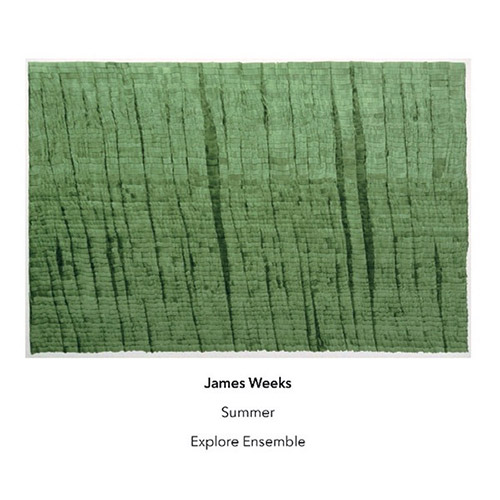
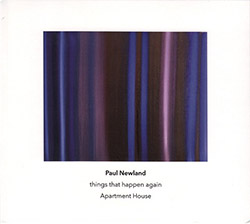
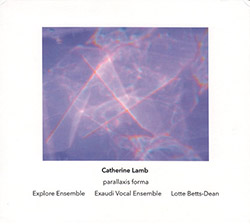
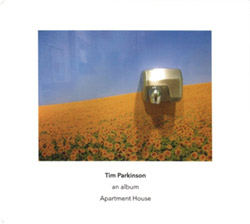
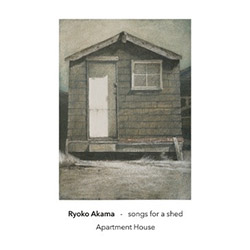
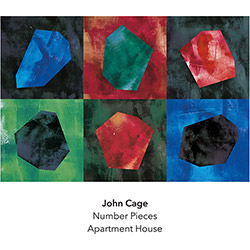

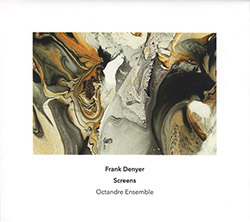

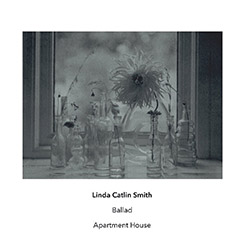

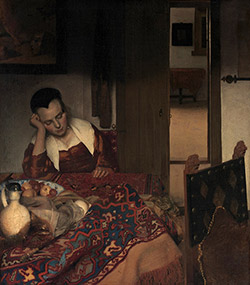
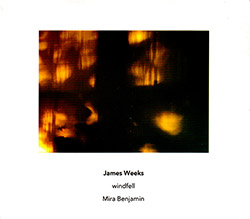
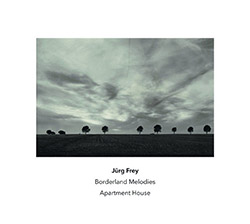
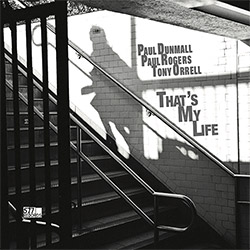
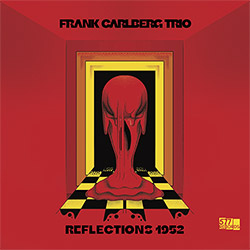
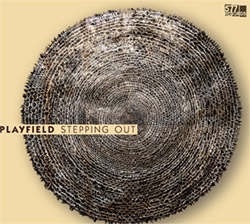


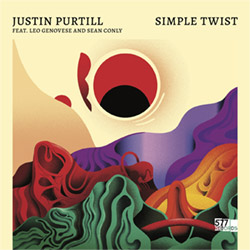
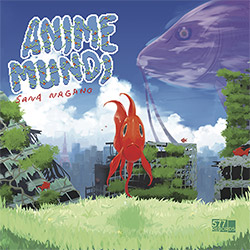

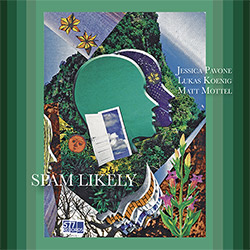



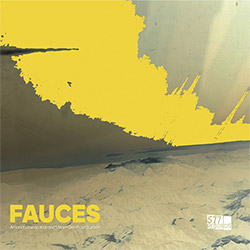




![BlueRing Improvisers: Materia [2 CDs]](https://www.teuthida.com/productImages/misc4/36513.jpg)








![Wheelhouse (Rempis / Adasiewicz / McBride): House And Home [VINYL]](https://www.teuthida.com/productImages/misc4/36462.jpg)
![+DOG+: The Light Of Our Lives [2 CDs]](https://www.teuthida.com/productImages/misc4/36009.jpg)


![Parker, Evan / Jean-Marc Foussat: Insolence [VINYL]](https://www.teuthida.com/productImages/misc4/36398.jpg)










![Deupree, Jerome / Sylvie Courvoisier / Lester St. Louis / Joe Morris: Canyon [2 CDs]](https://www.teuthida.com/productImages/misc4/36404.jpg)



![Eventless Plot | Haarvol: The Subliminal Paths [CASSETTE + DOWNLOAD]](https://www.teuthida.com/productImages/misc4/36232.jpg)










![Eventless Plot | Francesco Covarino: Methexis [CASSETTE + DOWNLOAD]](https://www.teuthida.com/productImages/misc4/36231.jpg)



![Das B (Mazen Kerbaj / Mike Majkowski / Magda Mayas / Tony Buck): Love [VINYL]](https://www.teuthida.com/productImages/misc4/36329.jpg)


![Eternities: Rides Again [CASSETTE]](https://www.teuthida.com/productImages/misc4/36247.jpg)
![Lopez, Francisco: Untitled (2021-2022) [2 CDs]](https://www.teuthida.com/productImages/misc4/36438.jpg)






![Money : Money 2 [2 CDs]](https://www.teuthida.com/productImages/misc4/35894.jpg)




![Klinga, Erik: Elusive Shimmer [VINYL]](https://www.teuthida.com/productImages/misc4/36258.jpg)
![CHANGES TO blind (Phil Zampino): Volume 9 - I Wave on a Fine Vile Mist [CD + DOWNLOAD]](https://www.teuthida.com/productImages/misc4/36061.jpg)

![Wallmart / Rubbish: Asset Protection [split CD]](https://www.teuthida.com/productImages/misc4/35900.jpg)


![+Dog+: The Family Music Book Vol. 5 [2 CDs]](https://www.teuthida.com/productImages/misc4/35897.jpg)
![Kuvveti, Deli : Kuslar Soyledi [CASSETTE w/ DOWNLOAD]](https://www.teuthida.com/productImages/misc4/36107.jpg)

![Brown, Dan / Dan Reynolds: Live At The Grange Hall [unauthorized][CASSETTE]](https://www.teuthida.com/productImages/misc4/36245.jpg)








![Palestine, Charlemagne / Seppe Gebruers: Beyondddddd The Notessssss [VINYL]](https://www.teuthida.com/productImages/misc4/36206.jpg)
![Palestine, Charlemagne / Seppe Gebruers: Beyondddddd The Notessssss [NEON GREEN VINYL]](https://www.teuthida.com/productImages/misc4/36207.jpg)

![Laubrock, Ingrid: Purposing The Air [2 CDs]](https://www.teuthida.com/productImages/misc4/35639.jpg)

![Yoko, Ono / The Great Learning Orchestra: Selected Recordings From Grapefruit [2 CDs]](https://www.teuthida.com/productImages/misc4/35841.jpg)









![Zorn, John / JACK Quartet: The Complete String Quartets [2 CDs]](https://www.teuthida.com/productImages/misc4/35609.jpg)

![Lonsdale, Eden: Dawnings [2 CDs]](https://www.teuthida.com/productImages/misc4/35480.jpg)



![Sorry For Laughing (G. Whitlow / M. Bates / Dave-Id / E. Ka-Spel): Rain Flowers [2 CDS]](https://www.teuthida.com/productImages/misc4/35985.jpg)

![Rolando, Tommaso / Andy Moor : Biscotti [CASSETTE w/ DOWNLOADS]](https://www.teuthida.com/productImages/misc4/36106.jpg)


![Electric Bird Noise / Derek Roddy: 8-10-22 [CD EP]](https://www.teuthida.com/productImages/misc4/35970.jpg)








![Elephant9 : Mythical River [VINYL]](https://www.teuthida.com/productImages/misc4/34624.jpg)



![Elephant9 with Terje Rypdal: Catching Fire [VINYL 2 LPs]](https://www.teuthida.com/productImages/misc4/35355.jpg)
![Deerlady (Obomsawin, Mali / Magdalena Abrego): Greatest Hits [VINYL]](https://www.teuthida.com/productImages/misc4/34876.jpg)







![Surplus 1980: Illusion of Consistency [CD]](https://www.teuthida.com/productImages/misc4/35069.jpg)
![Staiano, Moe: Away Towards the Light [VINYL + DOWNLOAD]](https://www.teuthida.com/productImages/misc4/35037.jpg)
![Coley, Byron: Dating Tips for Touring Bands [VINYL]](https://www.teuthida.com/productImages/misc4/17906.jpg)

![Lost Kisses: My Life is Sad & Funny [DVD]](https://www.teuthida.com/productImages/misc4/lostKissesDVD.jpg)